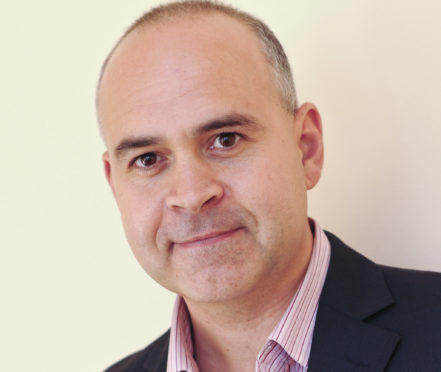Over the past few weeks it’s been impossible to avoid news on Brexit.
Will there be a deal? If so, to what extent? Will there be a delay? Will the UK leave the EU without a deal?
The only thing that appears to be certain is a great deal of uncertainty and that is something we are not very well equipped to deal with.
However, there are a number of things we can do to prepare for any eventuality.
Humans are hard-wired to prefer certainty, even if certainty means dealing with a ‘bad outcome’.
We simply prefer knowing what we are up against or knowing where we belong, for that matter.
Are we British? Scottish? European?
The ongoing uncertainty surrounding Brexit hits many of us right at the core of our identity.
We understand and define who we are based on our connections with others and how we relate to the world around us. At the moment, for many of us, all of that is being questioned.
Not knowing triggers very basic, emotionally-driven, responses in adults.
We are stressed by the sheer uncertainty of what our place is in the world and how this will impact on our family, our work or our business.
This stress can develop into very serious levels of anxiety. Some of us may go as far as ‘catastrophising’, imagining the worst possible outcome for lack of any clear alternatives – leading to despair and loss of hope.
Uncertainty has also been linked to indecisiveness and we could argue, in the case of Brexit, enforced indecisiveness until either a deal is struck, or it is confirmed that Britain will exit the EU without a deal.
We are enduring this stressful roller coaster of emotions imagining the varying possible outcomes for a prolonged period of time and that’s not good for our mental health.
How do we handle this uncertainty?
The classic advice of ‘one step at a time’ works. Look at things that matter today, which you can influence right now and start with them.
If you have a business that will be affected by Brexit, focus on the day-to-day decisions that need to be made now.
Next – scenario planning
This involves creating a variety of plans that can be applied depending on the outcome of the government’s negotiations.
Scenario planning will help you feel more prepared as you have considered the potential issues and had a chance to research them further and develop strategies to deal with them.
There may be ways of minimizing the harsher impacts just by talking things through with family, suppliers and customers… talking really is the best therapy.
Another aspect of Brexit is related to how we see ourselves. Would you say you’re Scottish? British? European? A combination of all three?
The sentiment behind the initial Brexit debate – and Scottish independence, for that matter – is deeply rooted in our search for who we are and trying to get back to our true self.
To some, stepping out of the larger body of the EU will feel like gaining back control over their own future. Others feel like a part of their own identity is being forcibly removed.
Where we fall on this spectrum depends on a vast number of factors.
Many of us ‘inherit’ part of our identity from our parents’ values and those dictated by the dominant culture surrounding us
Our identity is also defined by how we relate to people around us – starting with our friends and neighbours, and encompassing our communities, nations and international alliances.
When this sense of collective identity is challenged it is hugely personal, cutting to the core of ‘who’ we are.
This has the potential to generate great internal distress, whichever side of the fence we are on.
Without a doubt and whatever the final outcome of Brexit, one thing we can be absolutely certain of is a very strong legacy of pain, hurt and grief amongst many of our fellow citizens.
This is something it would do us well to remember in this time of great turbulence and change.
Professor Ewan Gillon, Chartered Psychologist and Clinical Director at First Psychology Scotland with centres in Aberdeen, Inverness, Dundee, Perth, Edinburgh, Glasgow and Borders.
www.firstpyschology.co.uk
www.aberdeenpsychology.co.uk
